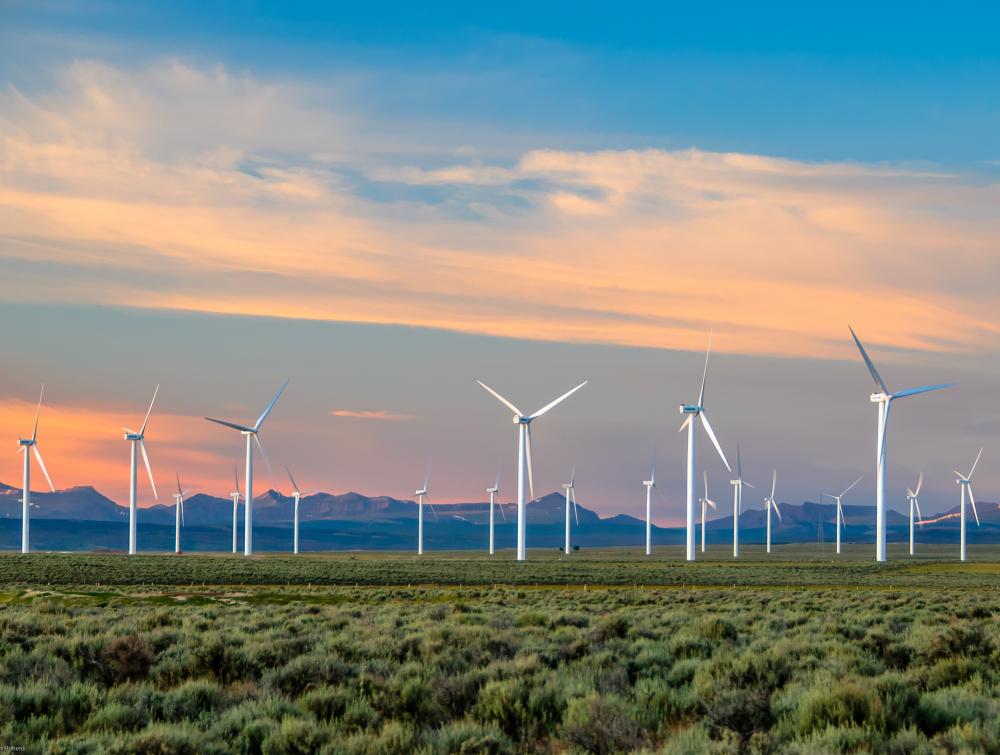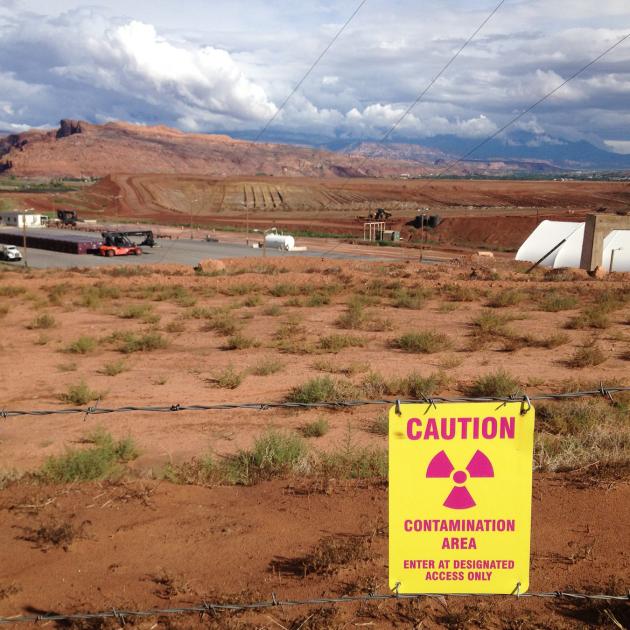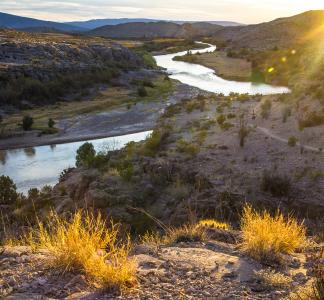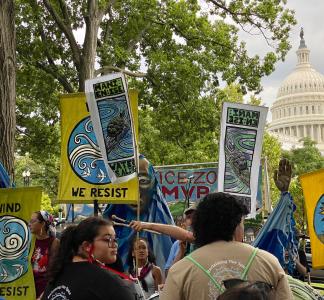‘Just and ambitious’ climate solutions will only come from robust public input

Daniel Hoherd, Flickr
Meanwhile, permitting bill would reduce community say
President Biden arrived at the United Nation’s COP 27 climate change conference with something to celebrate. Specifically, his recent signing of the Inflation Reduction Act into law.
The passage of that bill this fall marked the largest investment in U.S. history to fight climate change, putting hundreds of billions of dollars towards “unleashing a new era of clean-energy-powered economic growth,” as Biden touted onstage in Sharm El-Sheikh.
Behind the scenes of that very necessary renewable energy development are the communities, and the lands they call home, that will house and support this rapid transition away from fossil fuels. Not surprisingly, public lands and waters hold massive renewable energy potential and play an outsized role in the U.S.’ ability to lead the transition to a “just and ambitious” future—on par with one of COP27’s theme.
But a dirty permitting bill, proposed by Sen. Joe Manchin and now being considered in Congress, threatens any hope for this future by silencing community voices and favoring fossil fuel interests.
“Energy independence” bill a wolf in sheep’s clothing
While Sen. Manchin’s Energy Independence and Security Act of 2022 masquerades as a tool to support renewable energy ramp-up, it would actually fast-track fossil fuel projects and make it difficult for communities to challenge such development in their own backyards. By changing the permitting process for federal energy projects, the proposal would weaken the National Environmental Policy Act (NEPA)—a bedrock environmental safeguard, often used as a last line of defense by environmental justice communities and advocates.
Also coined “The People’s Environmental Law,” NEPA requires the government to consider how pipelines, landfills and other projects affect the environment and local communities. This is a particularly vital safeguard for Indigenous tribes, communities of color and lower-income neighborhoods that are already disproportionately at risk from environmental hazards and climate change.
What's more: the dirty permitting proposal would mandate and expedite construction of the Mountain Valley Pipeline, a disastrous project to carry gas across the Appalachian Mountains. It would pose a constant threat of toxic leaks to communities across West Virgina, Virgina and North Carolina, and also deepen the U.S.’ reliance on fossil fuels, making it impossible to meet our climate goals.
What does a just energy transition look like?
Making the transition just means putting the needs of people over oil and gas company profits, meaningfully consulting with tribes and engaging authentically with community members; it also means supporting fossil fuel-reliant communities and workers and valuing local and Indigenous knowledge and expertise in the environmental decision-making process.
As the U.S. looks to implement the Inflation Reduction Act and ramp up renewable energy projects, it must take a “smart from the start” approach and involve local stakeholders early and often. It’s through this type of public engagement that we can be sure renewable energy on public lands has community support and is sited in places that have high energy potential, but where development will not seriously hurt wildlands and wildlife.
Environmental justice groups and allied organizations and communities are urging the White House and Congress to pass the Environmental Justice for All Act, instead of ramming through the dirty permitting bill under false pretenses. This grassroots-powered bill would strengthen public participation and Tribal consultation, and help ensure renewable energy development is community-centered. Designed in coordination with environmental justice leaders, the bill empowers frontline communities to hold major polluters accountable for polluting our public lands and waters.
Time is running out to stop the dirty permitting bill
Standing on a global stage at COP 27, President Biden spoke on the myriad benefits of a renewable energy transition, including “good-paying union jobs for American workers” and “environmental justice in our communities.” But a renewable energy transition that fails to consult communities will also fail to serve our communities a safe and just future.
Right now, a dirty permitting bill that would silence communities’ voices and accelerate destructive fossil fuel and other development projects is poised to come up for a vote — unless key senators step up and put a stop to it.
What does the Inflation Reduction Act do to help communities and make public lands part of the climate solution?
NPS, Flickr
Dirty permitting deals must be stopped before even more communities are sacrificed
TWS
More drilling on public lands & waters will ultimately hurt our safety and security
Pixabay




